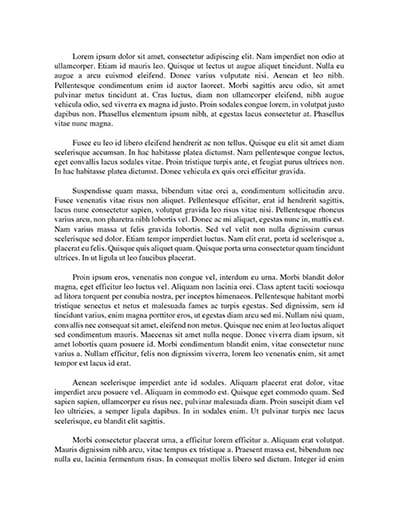Formal writing style definition
Formal language, or formal writing style, is a broad term, used to characterize a composition with an impersonal, objective and precise use of language.
This type of style is typical for research papers, essays, technical reports, scholarly materials, like books or articles, legal documents, and orations.
So what is a formal writing style?
Formal language is a lot different from informal, as it is less personal, uses another set of words and formulations for the same thought. Also, it serves a very different purpose. While the informal language might entertain or serve the purpose of creating new contacts, and formal language exists to inform or convince.
Formal writing style
The formal writing style is prevalent for the written text. Surely, if you sign a postcard for your friend, there is no need to write in a formal style. Moreover, it might look silly.
But, if you are writing an academic essay, complete the assignment, article or report, the formal writing style is an absolute must. 4 essential features define formal style from informal. Let’s go through.
#1. Third Person. You may not include anything personal in formal writing. In a formal style of writing the author has to be wholly disconnected from the topic. This type of writing does not stand both, first person’s point of view (like We, I) and second person (like You).
#2. Complex. Formal writing tends to omit simple sentences and apparent explanations. Complexity is primary here. Therefore, when writing your essay try to be as precise and thorough as possible. Also, do not forget about the structure. Anything that you have to say has to be introduced, explained and adequately concluded.
#3. Full Words. The reductions and contractions are not allowed in the formal writing style. Once you see reductions like it’s, can’t, etc. in the text, you should know it is written in the informal style. Avoid these words when writing your essays. Also be careful with acronyms. Those may be used only in case if they are more widespread than the full names. Acronyms like NATO or NFL are fine.
#4. Objective. Personal or subjective experience is not very tolerated in the formal writing style. It means that each point of view you have has to be strongly supported by objective arguments, taken from the relevant and trustworthy sources. It also means excellent detailing and thoroughness in what you write.
Types of formal writing style
All formal writing styles can be narrowed down to the four main or four key styles.
Narrative style (Storytelling)
The narration is all about telling a story, and therefore later it was called Storytelling. Nowadays this style is known widely under this name. This type of formal writing is one of the easiest, as it mostly relies on personal experience and retells the real-life stories. And even though this style somehow breaks the rules of formal writing, it is still considered to be formal.
This style tolerates the first person use in the text and also is deeply related to the personal experience.
Descriptive style (Painting a picture)
The descriptive style is somewhat similar to the narrative style but still has own features. Here it is not about the personal experience, but about depicting a place, event or a particular person. Still, you should provide your reader with emotions and strong feelings about the subject, so it means you have to use emotionally descriptive or sensory words.
Expository style (A factual writing)
An essay in the expository style provides the reader with the facts on the topic. So, what is right and tolerated here are facts, statistics, examples and so on. Usually, it is more informative and looks like ‘How to’ guides. The main point in writing such a piece is in sharing the information with the reader.
No emotions or 1st person writing is needed here. We come closer to the formal writing style classics.
Persuasive style (Convincing)
The most typical example of the formal style. It was created to convince your reader to your point of view on the issue. This is done with the strong logical arguments and experts opinion. Everything written in such an essay has to be logical, follow the system and clarified precisely.
Bottom Line
The formal writing style is considered to be one of the most complicated in mastering. Still, while learning how to depict, convince, and support your thoughts correctly, you invest significantly in your future.
The ability to express yourself in a clear and understandable manner, by using strong arguments and convincing people to take your side in the argument can mean a world in your future.

